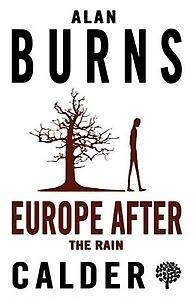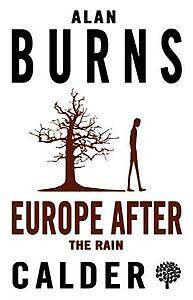
En raison d'une grêve chez bpost, votre commande pourrait être retardée. Vous avez besoin d’un livre rapidement ? Nos magasins vous accueillent à bras ouverts !
- Retrait gratuit dans votre magasin Club
- 7.000.000 titres dans notre catalogue
- Payer en toute sécurité
- Toujours un magasin près de chez vous
En raison de la grêve chez bpost, votre commande pourrait être retardée. Vous avez besoin d’un livre rapidement ? Nos magasins vous accueillent à bras ouverts !
- Retrait gratuit dans votre magasin Club
- 7.000.0000 titres dans notre catalogue
- Payer en toute sécurité
- Toujours un magasin près de chez vous
Description
Europe after the Rain takes its title from Max Ernst's surrealist work, which depicts a vision of rampant destruction - a theme which Burns here takes to its conclusion, showing man not merely trying to come to terms with desolation, but combating human cruelty with that resilience of spirit without which survival would be impossible. The Europe through which the unnamed narrator travels is a devastated world, twisted and misshapen, both geographically and morally, and he is forced to witness terrible sights, to which he brings an interested apathy, without ever succumbing to despair or cynicism.
Upon the novel's first publication, Burns was heralded as presenting a picture of his age and capturing the 'collective unconscious' of the twentieth century - in a language that can have few rivals for economy, beauty and rhythm. His austere sentences glow with intelligence, colour and force, and evoke a powerful image for the modern reader of fears every bit as relevant today as on the day when they were written.Spécifications
Parties prenantes
- Auteur(s) :
- Editeur:
Contenu
- Nombre de pages :
- 160
- Langue:
- Anglais
Caractéristiques
- EAN:
- 9780714549163
- Date de parution :
- 15-10-19
- Format:
- Livre broché
- Format numérique:
- Trade paperback (VS)
- Dimensions :
- 128 mm x 199 mm
- Poids :
- 154 g

Les avis
Nous publions uniquement les avis qui respectent les conditions requises. Consultez nos conditions pour les avis.






